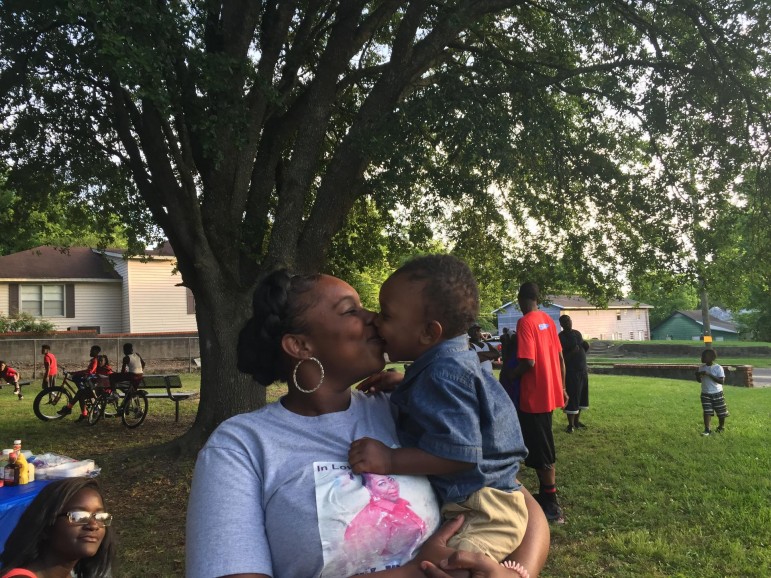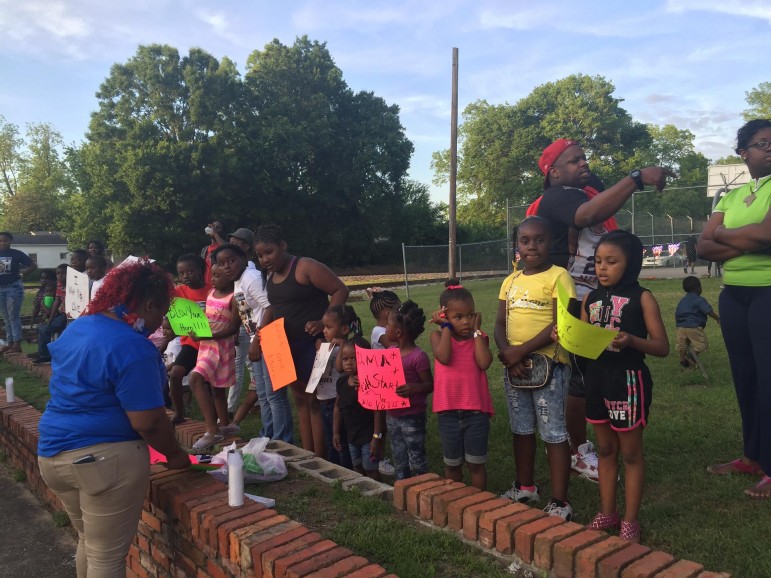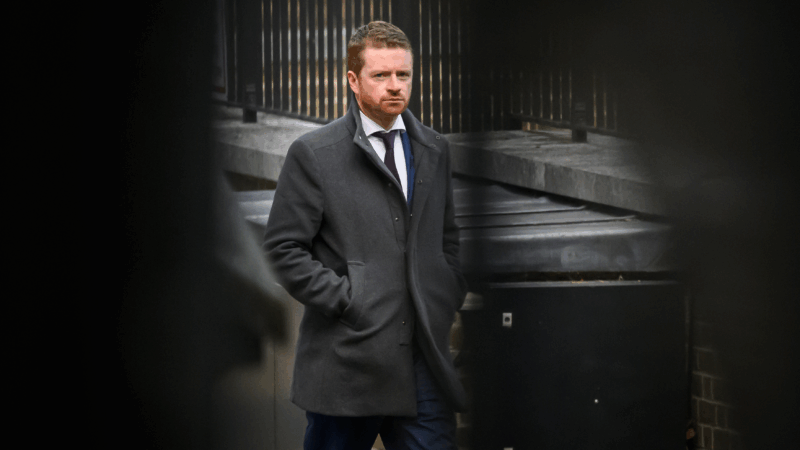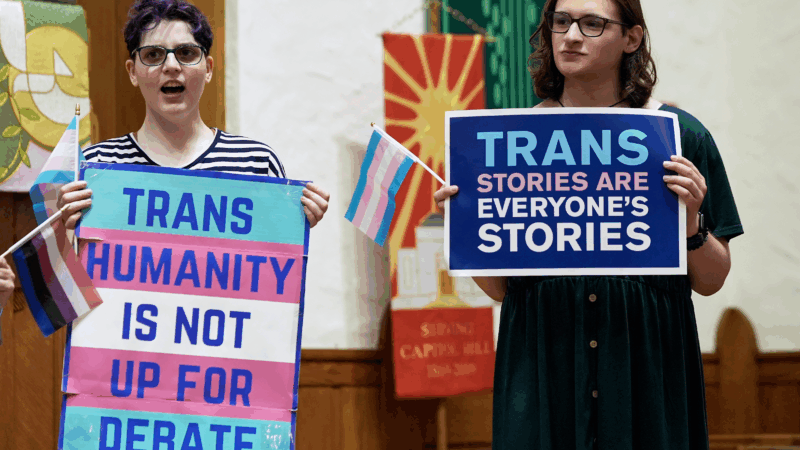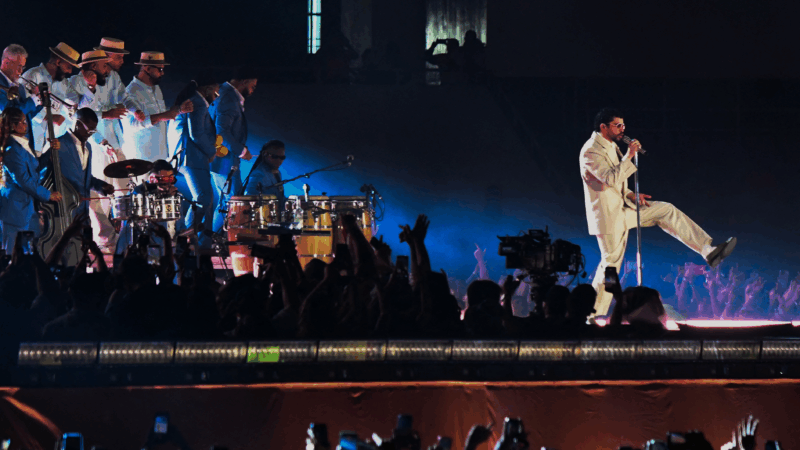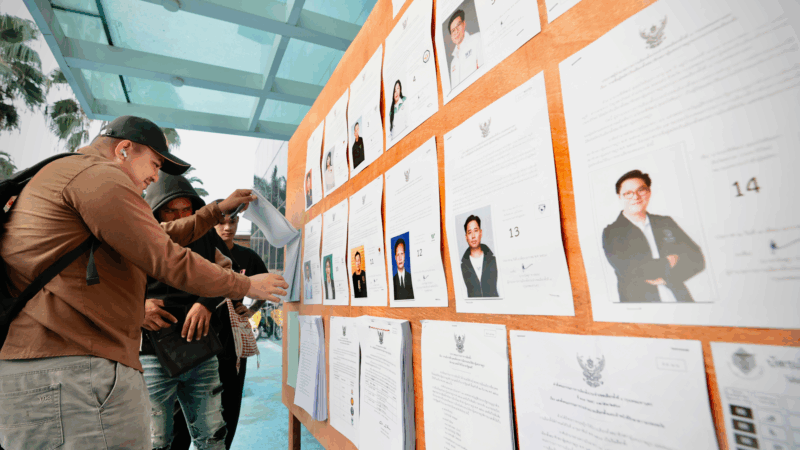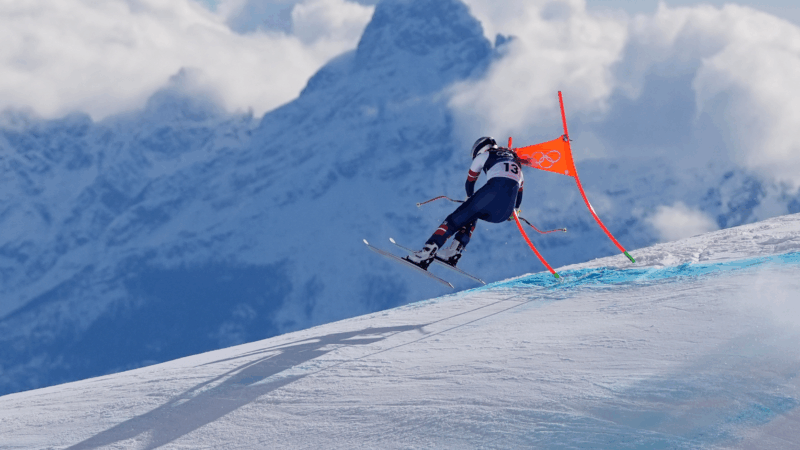Barbecuing to Stop Violence in Selma
For Tamalyn Whatley, living in Selma, Alabama, violence is always nearby.
“It’s an everyday thing,“ the 24-year-old explains as she plays with her youngest son in the front yard of family’s her home.
“I see it and deal with it.”
She grew up in this house, where she lives now. It’s also where her mom was shot and killed this past December.
It was an otherwise normal day, Whatley says. She and her mother ran errands and fixed a leaky kitchen sink. In the afternoon, they went out into the front yard, when suddenly five shots rang out. Her mother was shot in the back.
Whatley didn’t call the police or an ambulance. She doesn’t trust them to come quickly enough. Instead, she drove her mom to the hospital, where her mother died later that evening.
After her mom died, Whatley couldn’t sleep. Despite being seven months pregnant, she couldn’t eat.
“I made myself sick off of it,” Whatley says as she starts to cry. “I lost 20 pounds in one week of it, and when I had my baby he was underweight.”
The effects of the shooting have stayed with her four-year-old son LJ too.
“One day, I was driving and he said, ‘Ma, I just want to be dead,’” Whatley remembers. “I had to stop my car. I said, ‘No, LJ, you don’t want to die right now; it’s not time for you to die right now. I told you, your grandmother will be with you all the time in spirit.’”
Selma, Alabama is a small city with a population of just under 20,000. News of Whatley’s mother’s murder traveled quickly. Soon, Whatley got a message from a woman named Hatwatha Mcghee, better known as Lady Watha.
Lady Watha is a well-known deejay and club promoter in Selma. She was concerned about Whatley and the escalating violence in the city.
The city has had an unusually deadly year. There have already been eight murders, five of which happened this spring within less than a month.
So Lady Watha decided, “If I can pack a club, I can pack an event to stop the violence.”
Lady Watha started throwing a series of roving barbecues in Selma’s neighborhoods this spring. This was as the murder rate climbed.
Men in their 20s and 30s stand next to little boys in polo shirts and little girls in jelly sandals at a small park downtown. They chant “Stop the violence!” as cars pass by. They hold up pieces of neon poster paper containing handwritten slogans like “I am my brother’s keeper.”
About 20 guys walk around in red and blue t-shirts that say “Big Brotherz from the Hood.” This was another idea of Lady Watha’s. She wanted to get men from each neighborhood to come hang out at the barbecues. Some are former gang members or have been to prison. She hoped they would maybe counsel the younger generation about how guns and gangs are not the answer.
Nat Moore, 29, better known as Nat T, says violence has affected every person he knows in Selma:
“I’m talking about people that raised us, people that we looked up to, that we hung out with everyday.” He explains some are in prison, some have been shot, and some are dead. “People that we shared clothes with, that we shot ball with, rode bikes with. These are our people, so who better to do it for our people.”
Moore has two young daughters, and he doesn’t want them to grow up in a city rife with poverty and violence.
Organizers say they’re trying to do their part, but they can’t do it alone. Some in this majority-black city feel abandoned by the police. Whatley feels the police are simply scared of certain black neighborhoods. They have been invited to these BBQs, but so far only one off-duty officer has shown up.
John Brock has been on the police force in Selma for 30 years and Chief for almost a year. He is white and says he needs people in the black community to talk to the police when a shooting happens. But Brock also understands the community’s frustration and fear.
“How can you come up to a police officer and find out what’s going on or talk to him, when every time you have seen the police in your family, something bad has happened?” Brock explains. “We have to break that cycle a little bit, we have to try to break that cycle.”
Brock says his force is understaffed. He’s heard of Lady Watha’s group, and he hopes that it isn’t just a summer thing and they stick around.
Lady Watha says she’ll be here, and she hopes the police will join them.
“I have been needing the police to come in,” Lady Watha explains. She is adamant she will continue to hold these community events as long as the violence continues.
“I‘m going to go with Stop the Violence until I can see more change. I will go with Stop the Violence until the death of me, if I have to, ’cause we can find a cure for violence.”
Right now, Lady Watha says, the best cure she can think of is to rebuild a sense of community, one barbecue at a time.
U.K. leader’s chief of staff quits over hiring of Epstein friend as U.S. ambassador
British Prime Minister Keir Starmer's chief of staff resigned Sunday over the furor surrounding the appointment of Peter Mandelson as U.K. ambassador to the U.S. despite his ties to Jeffrey Epstein.
Trump administration lauds plastic surgeons’ statement on trans surgery for minors
A patient who came to regret the top surgery she got as a teen won a $2 million malpractice suit. Then, the American Society of Plastic Surgeons clarified its position that surgery is not recommended for transgender minors.
What you should know about Bad Bunny’s Super Bowl halftime show
Will the Puerto Rican superstar bring out any special guests? Will there be controversy? Here's what you should know about what could be the most significant concert of the year.
Sunday Puzzle: -IUM Pandemonium
NPR's Ayesha Rascoe plays the puzzle with KPBS listener Anthony Baio and Weekend Edition Puzzlemaster Will Shortz.
Thailand counts votes in early election with 3 main parties vying for power
Vote counting was underway in Thailand's early general election on Sunday, seen as a three-way race among competing visions of progressive, populist and old-fashioned patronage politics.
US ski star Lindsey Vonn crashes in Olympic downhill race
In an explosive crash near the top of the downhill course in Cortina, Vonn landed a jump perpendicular to the slope and tumbled to a stop shortly below.

